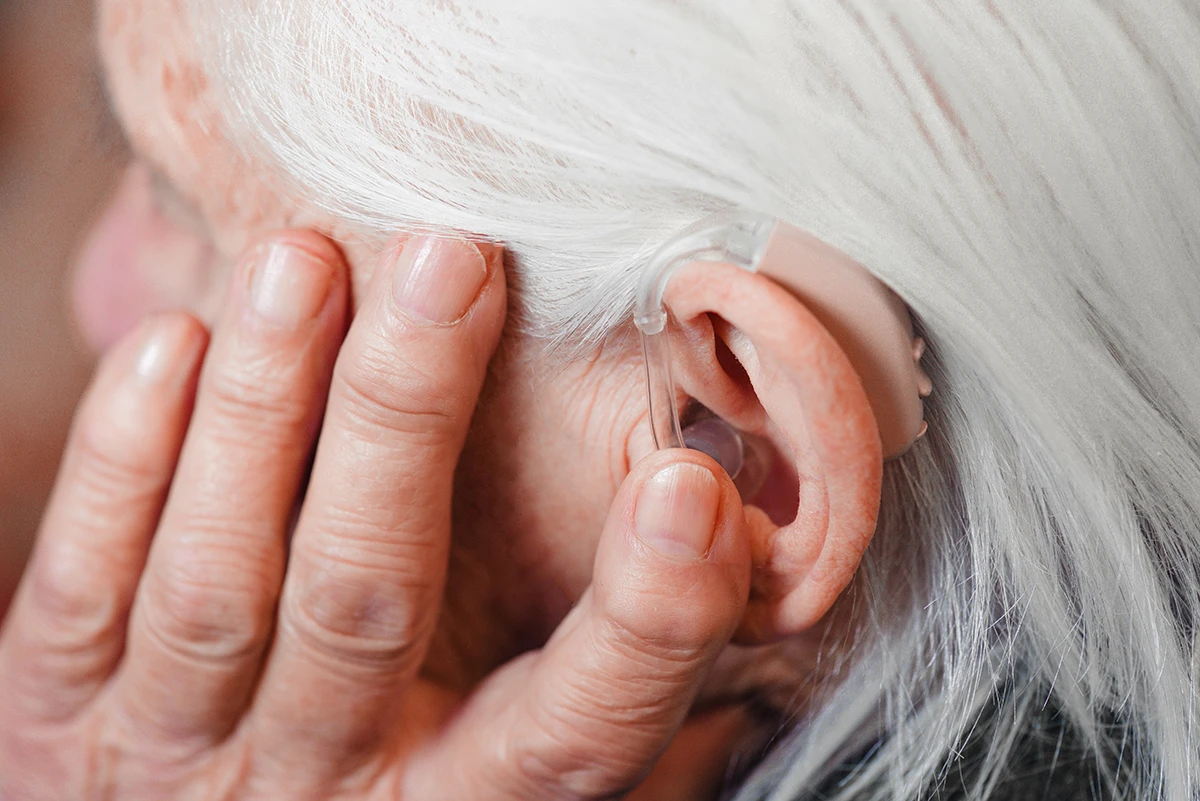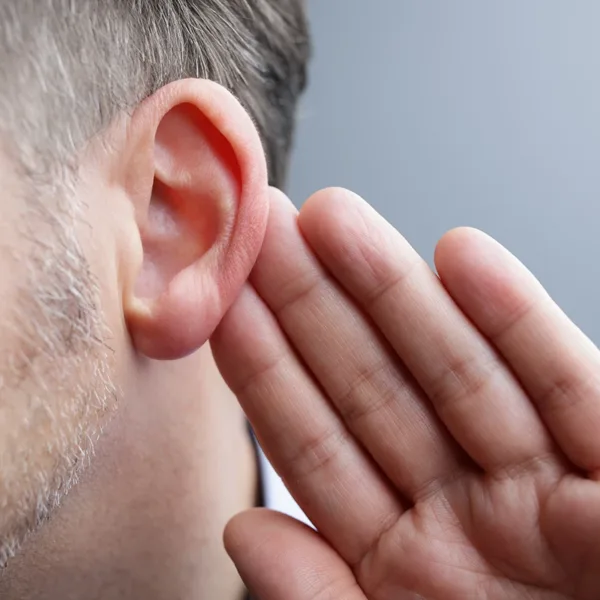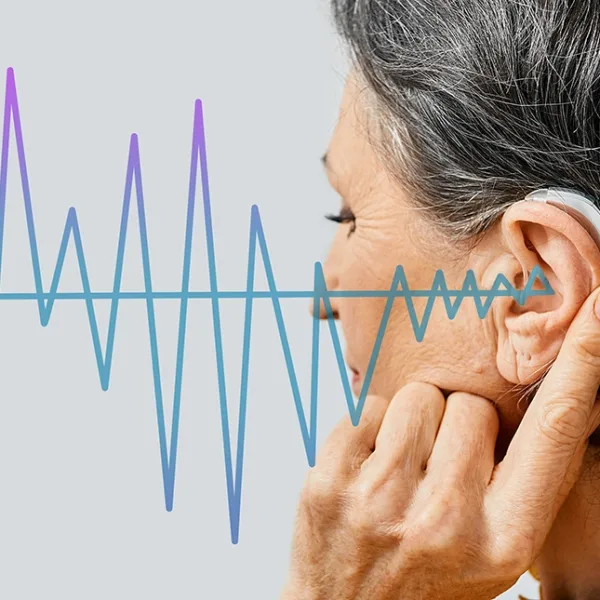
Hearing loss is an incredibly common condition, affecting an estimated 30 million people in the United States alone. It can significantly impact your daily life, making it difficult to engage in conversations, listen to music, or even drive safely. While hearing aids are a life-changing solution, the cost can be a barrier for some people. This begs the question: are cheap hearing aids worth it?
In this article, we explore the pros and cons of low-cost hearing aids and other key considerations to help you decide what’s best for your hearing health and budget.
What Are Cheap Hearing Aids?
“Cheap hearing aids” is a broad term that typically refers to over-the-counter (OTC) hearing aids. OTC hearing aids are available for purchase by adults 18 years old and older without a prescription or hearing test at drugstores, pharmacies, variety stores, and online retailers.
OTC hearing devices are basic sound amplifiers that can address some cases of self-perceived mild to moderate hearing loss. They are a one-size-fits-most option, designed to be used right out of the box with little to no fit customization. Most have basic settings with limited adjustability, which helps keep their prices lower.
Pros and Cons of Cheap Hearing Aids
While the lower price point can be appealing, it’s important to consider the potential advantages and disadvantages of these OTC devices. Below, we weigh the pros and cons to help you decide if OTC hearing aids are a good fit for your hearing health and needs.
Pros:
- Lower upfront cost: According to the American Speech-Language-Hearing Association (ASHA), the average cost of OTC hearing aids is about $1,500 per pair, but some models can start as low as $200 apiece. In some cases, this can be a more affordable option compared to prescription hearing aids.
- Increased convenience: OTC hearing aids are readily available for purchase without a visit to a hearing clinic. This can be convenient for those who are short on time or live in areas with limited access to hearing healthcare professionals.
Cons:
- Not suitable for all degrees of hearing loss: OTC hearing aids are FDA-regulated with mandatory volume controls. This means they may not be powerful enough to effectively treat your specific degree of hearing loss.
- Limited functionality: Cheap OTC devices often lack advanced features like background noise cancellation and speech clarity capabilities. These features can be crucial for many people with any degree of hearing loss, especially those who struggle in complex listening situations.
- Standard fit: Without a professional fitting by a specialist, OTC hearing aids may not sit comfortably or securely in your ear. This can lead to feedback whistling, discomfort, and reduced effectiveness overall.
- No professional support: Without consulting a specialist, you miss out on a crucial evaluation of your hearing health. A hearing healthcare provider can diagnose the cause and type of your hearing loss, recommend the most suitable hearing solution, and provide ongoing care and support.
- Consumer protection not guaranteed: Unlike many other products, there’s no federal law mandating that OTC hearing aid manufacturers must accept returns on their devices. This means you might not be able to get your money back if you buy them and they don’t work out for you.
Key Considerations Before Buying Cheap Hearing Aids
Hearing loss treatment is not a one-size-fits-all solution. Cheap OTC hearing aids might be a good option for some people, but they have limitations and may not be right for everyone. Here are some key considerations to help you decide if these devices are a good option for you.
Your Type of Hearing Loss
OTC hearing devices might seem like a convenient option, but the type of hearing loss you have plays a big role in their effectiveness. There are different types of hearing loss, each affecting how you perceive sound in different ways:
Conductive hearing loss often results from blockages or damage occurring in the outer and/or middle ear. Low-cost OTC aids simply amplify sound, but if the issue is a blockage, more amplification won’t necessarily improve hearing clarity.
Sensorineural hearing loss is caused by damage to the auditory nerve, and/or the microscopic hair cells located in the inner ear (cochlea). OTC devices aren’t programmed for individual needs and have limited amplification strength. This means they may not adequately address the specific frequencies you struggle with or provide enough volume for more severe cases of sensorineural hearing loss.
Your Degree of Hearing Loss
Unlike prescription hearing aids that can treat any level of hearing loss, cheap OTC hearing devices have limitations on how loud they can amplify sounds. For some cases of self-perceived mild to moderate hearing loss, this might be sufficient if the environment is quiet enough. However, for severe to profound loss, or complex listening situations, the amplification will not be strong enough to bring sounds to an audible level.
Health Conditions and Medications
Hearing loss can be a symptom of underlying medical issues, ranging from problems like earwax buildup to more serious conditions like diabetes or even a tumor. Opting for cheap hearing aids and bypassing a professional exam and diagnosis means the root cause of your hearing loss can be overlooked. This could delay necessary medical treatment and potentially lead to further complications down the line.
Certain medications can also damage your hearing, resulting in drug-induced hearing loss also known as ototoxicity. There are more than 200 medications that can potentially damage your hearing, including both prescription drugs and over-the-counter medications.
Hidden Costs
While OTC hearing aids can boast a low upfront cost, there are some additional expenses to consider. Replacement batteries, which may be needed frequently, add up over time. You will also need to invest in tools and products for cleaning your devices.
Additionally, without care from a hearing specialist you miss out on adjustments or repairs needed to maintain your hearing aid’s effectiveness, leading to additional expenses. Plus, with the lack of consumer protection associated with cheap hearing aids, if your devices are broken or require repair, you will be responsible for paying for it.
Find the Best Hearing Aids for Your Needs and Budget at Audibel
Investing in your hearing health is an investment in your overall well-being. While cheap OTC hearing aids may seem like a quick fix, they aren’t suitable for all types of hearing loss or more complex hearing needs.
At Audibel, your hearing health is our primary concern. We understand that everyone’s hearing needs and budgets are different. This is why we offer a wide range of prescription hearing aids at various price points. Contact an Audibel hearing clinic near you to schedule a hearing consultation and find the best hearing aids for you.







Have a question or Comment?